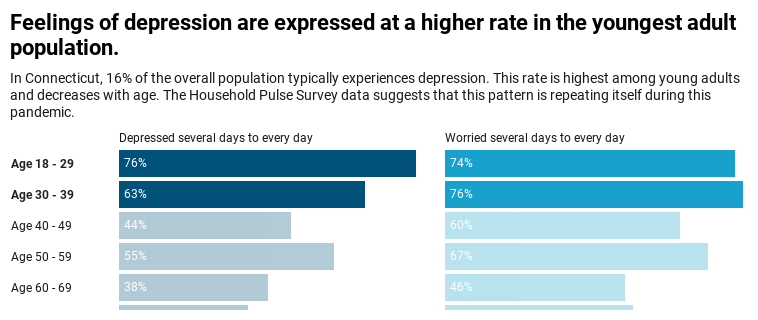Embracing Hope The Role of a Miscarriage Therapist in Recovery
The journey through miscarriage is a heart-wrenching experience that leaves individuals and couples grappling with a complex array of emotions, from profound grief to uncertainty about the future. In the aftermath of such a loss, the role of a miscarriage therapist becomes indispensable in providing a compassionate guide for those seeking to navigate the intricate landscape of recovery. This article explores in detail the transformative role of a miscarriage therapist, emphasizing their crucial role in helping individuals and couples embrace hope and find healing after the pain of miscarriage.
Understanding the Depths of Miscarriage Grief:
Miscarriage is a unique form of loss that transcends the physical dimension, impacting individuals and couples emotionally, mentally, and spiritually. The grief that accompanies a miscarriage is often profound, and the emotions can be overwhelming. Feelings of sadness, guilt, anger, and even isolation are common responses to the complex tapestry of emotions that arise in the aftermath of miscarriage.
- The Emotional Turmoil:
Grieving after a miscarriage is a complex and multifaceted process. Individuals may experience a range of emotions, often shifting unpredictably. The emotional turmoil can strain relationships, exacerbate feelings of isolation, and create a profound sense of loss. - Challenges in Communication:
Miscarriage grief can pose challenges in communication, particularly between partners. Each person may cope differently, leading to misunderstandings and a sense of emotional distance. The inability to openly communicate about the pain can intensify the grief experience. - Coping with Uncertainty:
The uncertainty about the future and the fear of facing another loss can add another layer of complexity to the grieving process. Individuals and couples may grapple with the decision to try again, navigating a delicate balance between hope and fear.
The Role of a Miscarriage Therapist in Recovery:
- Creating a Safe and Compassionate Space:
The foremost role of a miscarriage therapist is to create a safe and compassionate space for individuals and couples to express their emotions openly. This safe haven becomes a crucial foundation for the healing journey, allowing clients to share their pain without fear of judgment. - Validation of Grief:
A miscarriage therapist acknowledges and validates the depth and complexity of grief. By normalizing the emotional responses to miscarriage, the therapist helps individuals understand that their feelings are valid and part of a shared human experience. - Tailoring Coping Strategies:
Every individual’s grief journey is unique, and a skilled miscarriage therapist tailors coping strategies to address specific needs. These strategies may include mindfulness techniques, cognitive-behavioral tools, and narrative therapy to foster emotional resilience. - Facilitating Couples Communication:
Miscarriage therapists specialize in facilitating communication between partners. Through couples counseling, therapists guide individuals and couples in expressing their emotions, fostering empathy, and navigating the challenges of grief together. - Addressing Guilt and Shame:
Feelings of guilt and shame are common responses to miscarriage. A miscarriage therapist helps individuals navigate these complex emotions, providing a supportive environment for self-compassion, forgiveness, and the release of burdensome guilt. - Fostering Hope and Renewal:
A central role of a miscarriage therapist is to foster hope and renewal. Through therapeutic interventions, individuals and couples are guided toward envisioning a hopeful future, reclaiming a sense of purpose, and embracing the possibility of new beginnings. - Exploring Paths to Parenthood:
For those considering trying again, a miscarriage therapist plays a pivotal role in guiding the decision-making process. By providing information, emotional support, and a non-biased perspective, the therapist assists individuals and couples in making informed choices aligned with their emotional well-being.
Case Study: Emma and Michael’s Journey:
Consider the hypothetical case of Emma and Michael, a couple who experienced the pain of miscarriage. Through the guidance of a miscarriage therapist, they found a space to express their grief openly, learned coping strategies to navigate their emotions, and strengthened their relationship through couples counseling. Over time, Emma and Michael were able to embrace hope, finding renewal and envisioning a positive future.
Conclusion:
In the aftermath of miscarriage, a miscarriage therapist serves as a beacon of hope and healing, guiding individuals and couples on a transformative journey toward recovery. By creating a safe space, validating grief, and offering tailored coping strategies, these therapists play a vital role in helping individuals and couples navigate the complexities of loss. The therapeutic process becomes a roadmap to healing, fostering communication, addressing emotional challenges, and ultimately allowing individuals and couples to embrace hope and renewal after the profound pain of miscarriage. As the healing journey unfolds, the role of a miscarriage therapist becomes a testament to the resilience of the human spirit and the possibility of finding light even in the darkest moments of grief.





